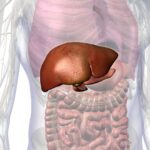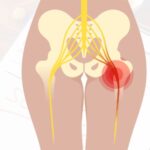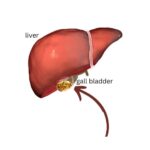Understanding Irritable Bowel Syndrome (IBS): Symptoms, Causes, and Homeopathic Treatment
Introduction
Irritable Bowel Syndrome (IBS) is a common gastrointestinal disorder that affects millions of people worldwide. Characterized by chronic abdominal pain, bloating, and altered bowel habits, IBS can significantly impact the quality of life. While conventional treatments are available, many people turn to homeopathy for a more holistic approach. This blog will explore the symptoms and causes of IBS and provide an overview of homeopathic treatments, including 20 specific homeopathic remedies.
Symptoms of IBS
IBS symptoms can vary widely from person to person, but common symptoms include:
- Abdominal Pain and Cramping: Often relieved by passing stool.
- Bloating and Gas: Sensation of fullness and increased gas production.
- Diarrhea: Frequent, loose, or watery stools.
- Constipation: Hard, dry stools that are difficult to pass.
- Alternating Diarrhea and Constipation: Fluctuations between diarrhea and constipation.
- Mucus in Stool: Presence of white mucus in the stool.
- Urgency: Sudden, strong urge to have a bowel movement.
- Feeling of Incomplete Evacuation: Sensation that the bowels are not completely emptied.
Causes of IBS
The exact cause of IBS is unknown, but several factors are believed to contribute to its development:
- Abnormal Gut Motility: Irregular muscle contractions in the intestines.
- Nervous System Dysfunction: Poor communication between the brain and the gut.
- Gut Infections: Bacterial or viral infections that affect the digestive tract.
- Small Intestinal Bacterial Overgrowth (SIBO): Excessive bacteria in the small intestine.
- Food Sensitivities: Intolerance to certain foods, such as gluten or lactose.
- Stress and Anxiety: Emotional stress and anxiety can exacerbate IBS symptoms.
- Hormonal Changes: Hormonal fluctuations, especially in women during menstrual cycles.
Homeopathic Treatment for IBS
Homeopathy offers a natural and holistic approach to treating IBS. Homeopathic remedies aim to stimulate the body’s self-healing mechanisms, providing relief from symptoms and addressing underlying causes. Here are 20 homeopathic medicines commonly used for IBS:
- Nux Vomica: For abdominal pain, bloating, and constipation, especially after overeating or consuming rich foods.
- Lycopodium: For bloating, gas, and constipation, particularly in individuals who crave sweets and have a sedentary lifestyle.
- Pulsatilla: For IBS with alternating diarrhea and constipation, and symptoms that worsen with fatty foods.
- Colocynthis: For severe abdominal cramps relieved by bending double or applying pressure.
- Argentum Nitricum: For diarrhea triggered by anxiety or anticipation, and a craving for sweets.
- Aloe Socotrina: For sudden, urgent diarrhea, especially in the morning.
- Carbo Veg: For bloating, gas, and belching, particularly after consuming fatty foods.
- Natrum Muriaticum: For IBS symptoms linked to emotional stress and bottled-up emotions.
- Silicea: For constipation with hard, difficult-to-pass stools and abdominal bloating.
- Sulphur: For burning sensations in the digestive tract, diarrhea, and early morning bowel movements.
- China Officinalis: For bloating, gas, and weakness after prolonged diarrhea.
- Bryonia: For constipation with dry, hard stools and a great thirst for large quantities of water.
- Phosphorus: For IBS with loose stools and a tendency to bleed easily from the rectum.
- Sepia: For IBS symptoms worsened by hormonal changes, particularly in women.
- Kali Carb: For bloating, flatulence, and abdominal pain, especially around the navel.
- Magnesia Phosphorica: For spasmodic abdominal pain relieved by warmth and pressure.
- Chamomilla: For abdominal pain and diarrhea in irritable, sensitive individuals.
- Podophyllum: For profuse, explosive diarrhea, especially in the morning.
- Mercurius Solubilis: For frequent, urgent bowel movements with a sense of incomplete evacuation.
- Ipecacuanha: For constant nausea with diarrhea or constipation.
Conclusion
IBS can be a challenging condition to manage, but homeopathy offers a gentle and holistic approach to treatment. By addressing both the symptoms and underlying causes, homeopathic remedies can provide significant relief and improve the quality of life for those suffering from IBS. As with any medical condition, it is important to consult with a healthcare professional or a qualified homeopath to determine the most appropriate treatment plan tailored to your specific needs.






























































































I’ve been surfing on-line greater than 3 hours as of late, but I by no means discovered any interesting article like yours. It is lovely value enough for me. In my view, if all site owners and bloggers made excellent content material as you probably did, the web will probably be a lot more useful than ever before.